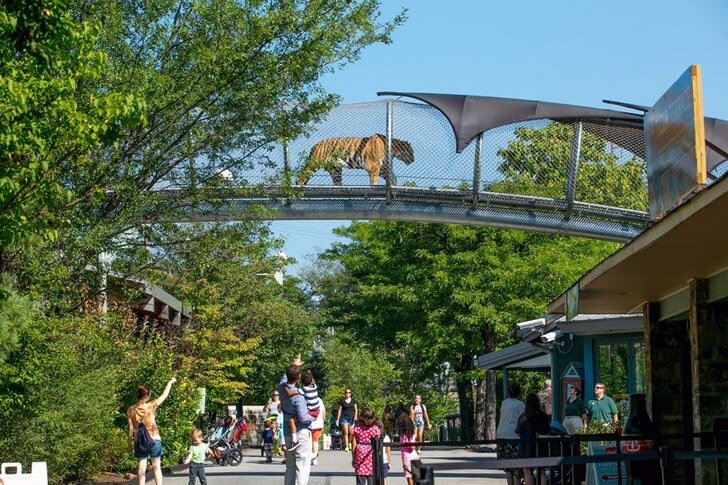Philadelphia was founded by representatives of the Christian Quaker movement on the site of an old Swedish settlement. In the early years of the city's existence, immigrants from different European countries arrived here. Within 100 years, the city has become one of the largest North American colonies.
Philadelphia is known throughout the world due to the fact that here in 1776 the independence of the United States of America was proclaimed. The main attractions associated with this grand event: Independence Hall, the Liberty Bell, the National Constitution Center. The whole history of the city is saturated with the spirit of freedom, democracy and civil society.
Philadelphia also has museums and galleries displaying valuable works of art. Their rich collections attract a considerable number of tourists every year.
What to see and where to go in Philadelphia?
The most interesting and beautiful places for walking. Photos and a short description.
- Independence Hall
- Liberty Bell
- Philadelphia City Hall
- Eastern State Penitentiary
- Magic Gardens of Philadelphia
- Philadelphia Museum of Art
- Franklin Institute
- Barnes Foundation
- Rodin Museum
- Museum of Medical History Mütter
- Museum of Archeology and Anthropology, University of Pennsylvania
- Kimmel Center for the Performing Arts
- Pennsylvania Academy of the Fine Arts
- University of Pennsylvania
- Cathedral of Saints Peter and Paul
- Philadelphia Masonic Temple
- Church of Christ
- National Constitution Center
- Betsy Ross House
- Elfret Alley
- Philadelphia Railroad Station
- Reading Terminal Market
- Citizens Bank Park
- Morris Arboretum
- Philadelphia Zoo
Independence Hall
In 1776 the Declaration of Independence was signed at Independence Hall, and in 1787 the US Constitution was signed. Today the building is part of the historical park, which is included in the UNESCO World Heritage List. The building was built in 1753 according to the design of E. Woolley and E. Hamilton in the Gregorian style. After the reconstruction of 1820, Independence Hall acquired the features of classicism, but in 1950 it was returned to its historical appearance.
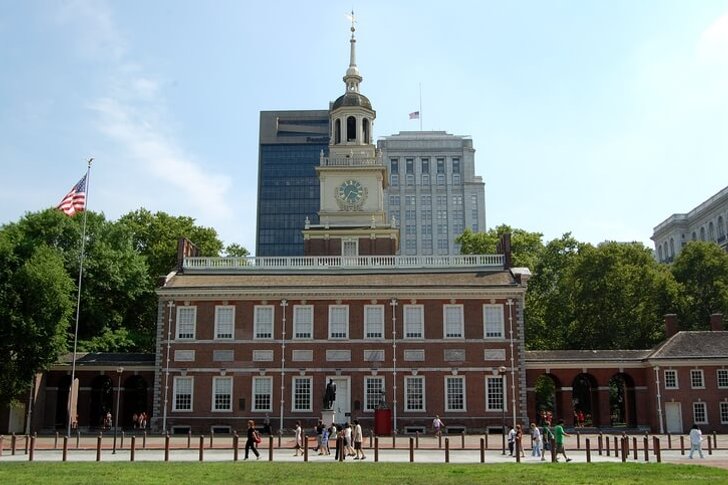
Liberty Bell
One of the main symbols of the struggle for freedom. In 1776, the bells called the people of Philadelphia to the Declaration of Independence. The total weight of the bell is about 950 kg, the diameter is 3.7 meters. Since 1976, it has been placed in a specially built pavilion (previously the alarm was in one of the halls of Independence Hall). Every year on July 4, on Independence Day, the bell is struck 13 times.
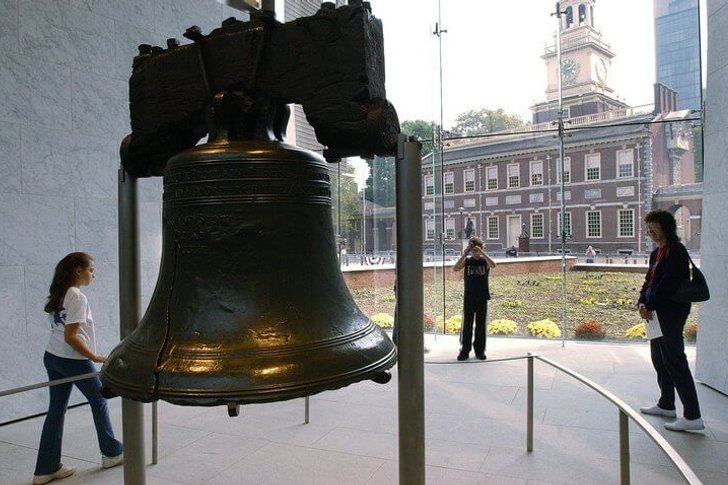
Philadelphia City Hall
The town hall was built in the late 19th - early 20th centuries according to the design of D. MacArthur Jr. in the architectural style of the Second Empire. It was planned that this building would be the largest in the world, but even in the process of construction it was surpassed by the Eiffel Tower. The town hall is crowned with an 11-meter statue of the founder of the city, W. Penn. The building is listed as a US National Historic Landmark.
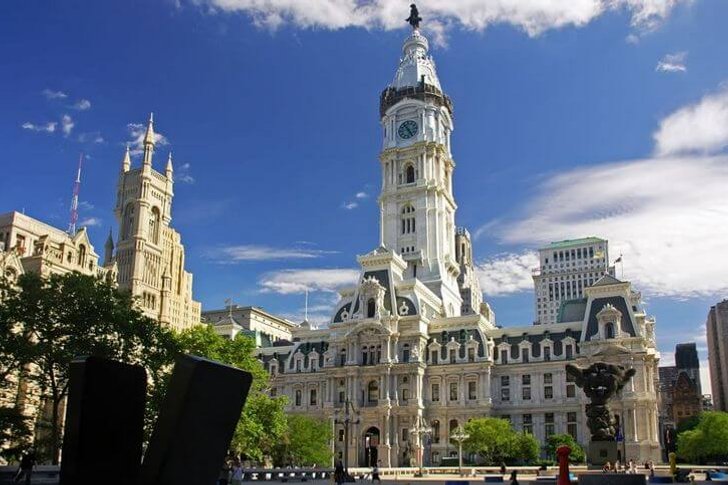
Eastern State Penitentiary
The prison existed from 1829 to 1969. It contained many famous criminals. Until 1993, the prison buildings were in disrepair, in 1994 a museum was opened on the territory, which today is visited by several tens of thousands of people a year. In 1929, the famous gangster Al Capone was sitting here. Tourists can view his cell, which is elegantly furnished with wooden furniture.
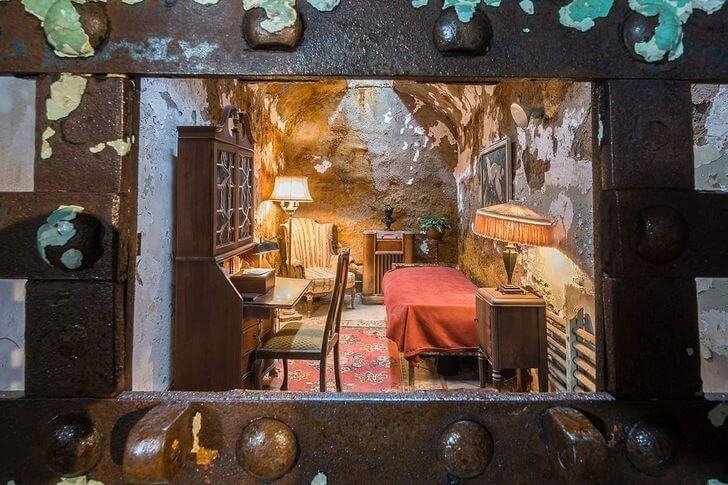
Magic Gardens of Philadelphia
The romantic name "Magic Gardens" is an unusual house located on one of the city streets. Its walls are completely covered with pieces of tiles and glass, and the courtyard is a bizarre labyrinth with stairs, grottoes and terraces. The avant-garde artist I. Zagar, who lived in Latin America for a long time, had a hand in the creation of this amazing place.
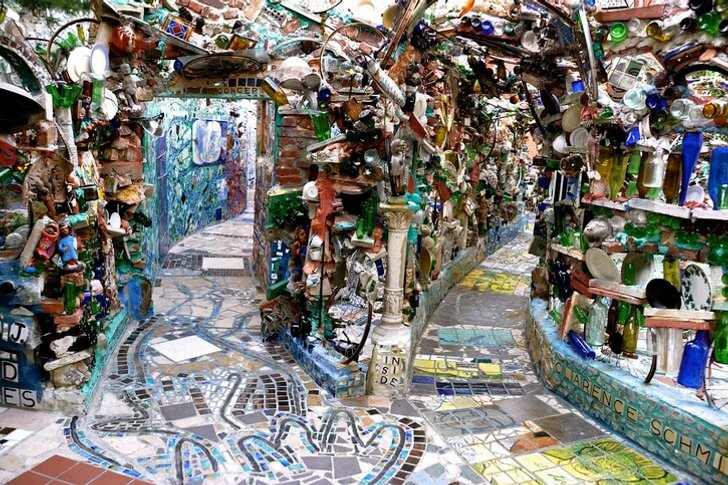
Philadelphia Museum of Art
The gallery was founded in 1876. Its opening was timed to the World Exhibition, the date of which coincided with the centenary of the signing of the Declaration of Independence. Since 1928, the museum has been located in a monumental classical building on Benjamin Franklin Parkway. Its collection contains more than 200 thousand works of art brought from different continents. The museum has research laboratories and a library.
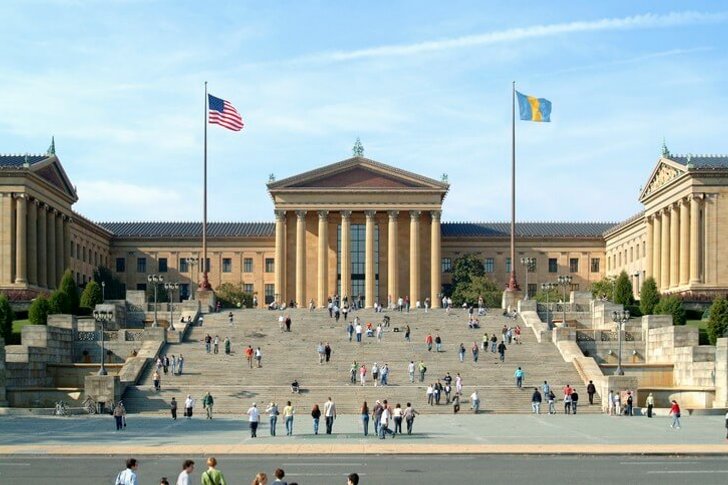
Franklin Institute
The politician and leader of the American War of Independence B. Franklin was also a good inventor. It was his work that formed the basis of the museum collection of the Franklin Institute. Also here are the inventions of scientists of the XVIII - XX centuries and innovative technologies of our time. The museum has a planetarium and the Hall of Dinosaurs, which will be of particular interest to visitors with children.
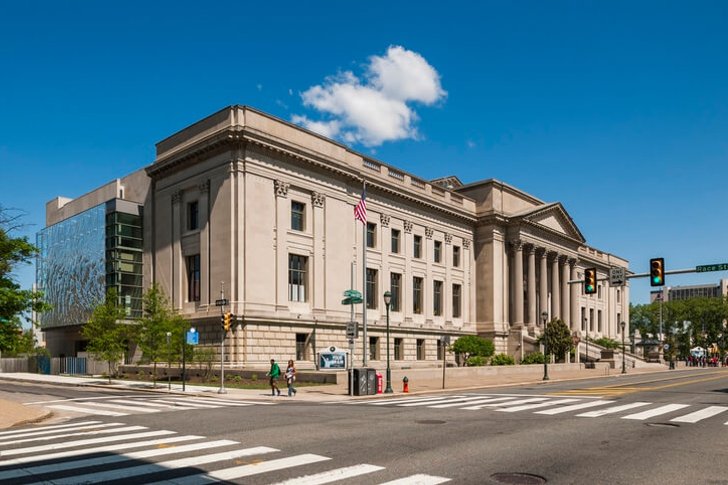
Barnes Foundation
The foundation is a museum and art school. It was founded in 1922 by collector and inventor A. K. Barnes in the Philadelphia suburb of Merion. In the 1990s, the foundation was moved to the city center, as the original location proved unsuccessful. The museum exhibits a collection of French paintings of the 19th and 20th centuries, including works by Matisse, Cezanne and Renoir. There are also ancient artifacts and arts and crafts from America and Europe.
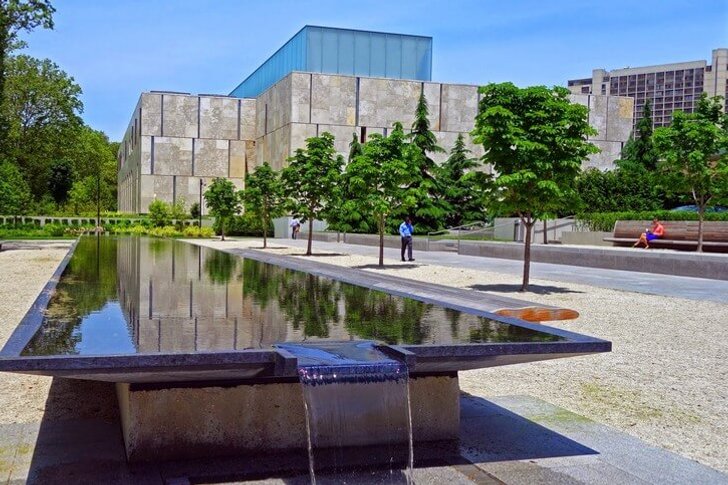
Rodin Museum
The museum's collection is dedicated to the work of the French sculptor O. Rodin, who made an invaluable contribution to world art. In addition to the master's works, the gallery exhibits engravings, letters and books. The idea to found a museum belonged to the philanthropist J. Mastbaum, who collected works by Rodin and wanted to donate his collection to the city. Unfortunately, he never lived to see the opening in 1929.
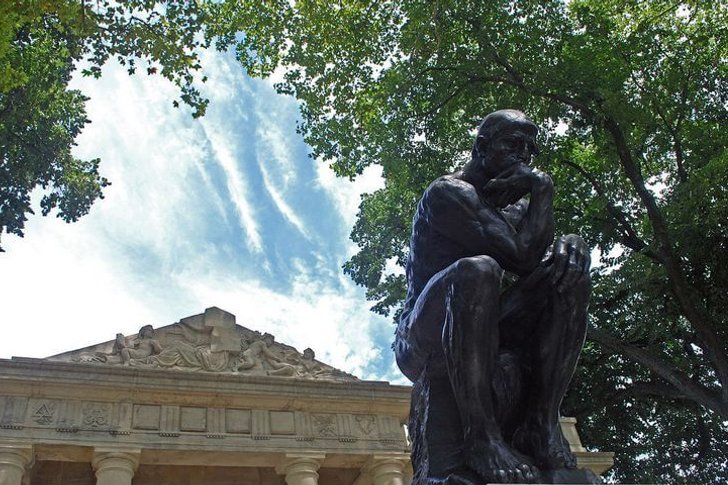
Museum of Medical History Mütter
A natural science museum dedicated to medical pathology, located at the University of Pennsylvania School of Medicine. In addition to biological exhibits (preserved organs and tissues), antique equipment and wax models are exhibited here. The collection was created for scientific purposes, but then it turned into a museum open to all comers.
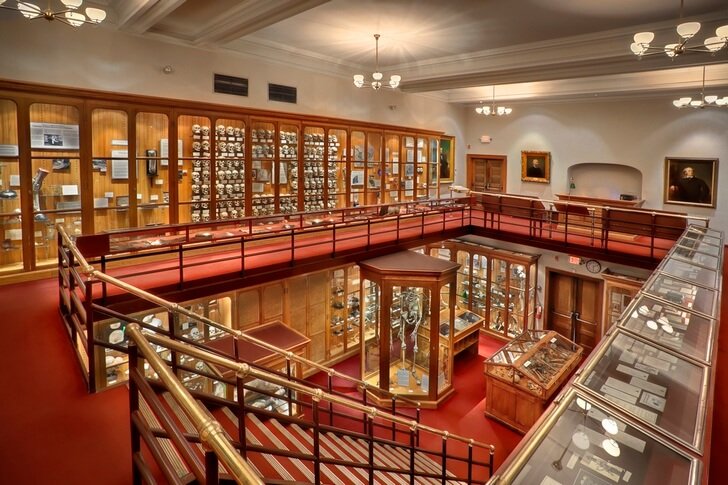
Museum of Archeology and Anthropology, University of Pennsylvania
The museum's collection consists of exhibits that were found during archaeological expeditions at the beginning of the 20th century. Scientists visited Africa, Mesopotamia, Latin America and East Asia, from where they brought many interesting artifacts: mummies, Indian religious objects, musical instruments, ancient coins and other antiquities. There were about 400 such expeditions in total.
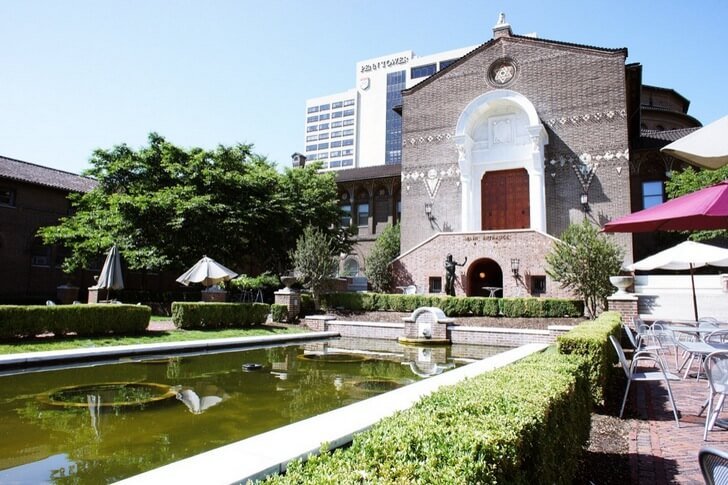
Kimmel Center for the Performing Arts
Philadelphia Conservatory, where the local symphony orchestra performs. The building was built in 2001 by the American architect R. Vignoli. The center consists of two halls: the first can accommodate 2.5 thousand spectators, the second - 650. The main architectural element of the building is an impressive glass dome, made up of several dozen arches fastened together.
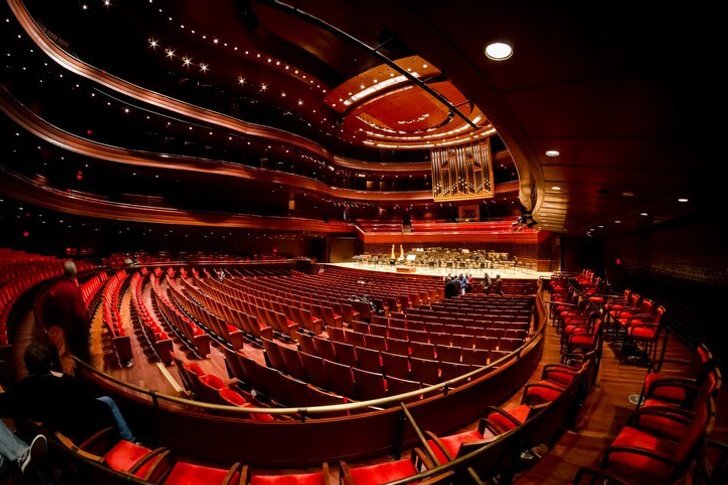
Pennsylvania Academy of the Fine Arts
The Academy was founded in 1805 to promote and promote the arts by a group of patrons and painters from Pennsylvania. In 1810 painting classes started working, and in 1811 the museum organized its first exhibition. Toward the end of the 19th century, the academy moved into a two-story mansion built in a luxurious Victorian style. Today, this educational institution is considered one of the best in the field of art.
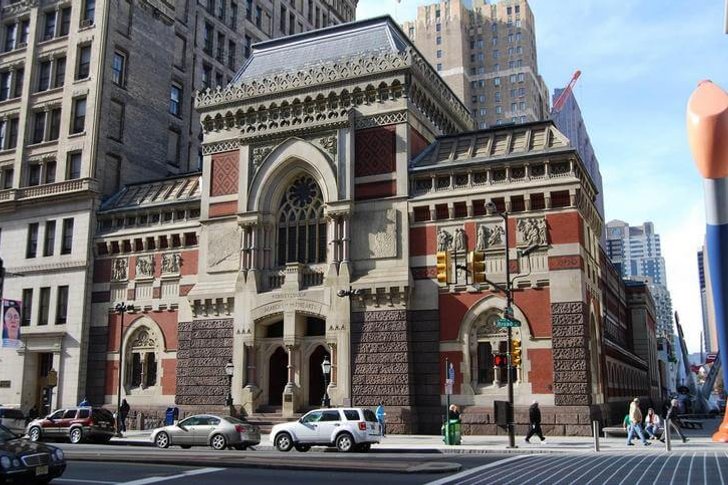
University of Pennsylvania
The university was founded in the middle of the XVIII century as a charitable school even before the signing of the Declaration of Independence. Benjamin Franklin himself became its first leader. The names of many political figures who played an important role in US history are associated with this educational institution. Some of the university's faculties and laboratories are housed in picturesque Gothic and Victorian buildings.
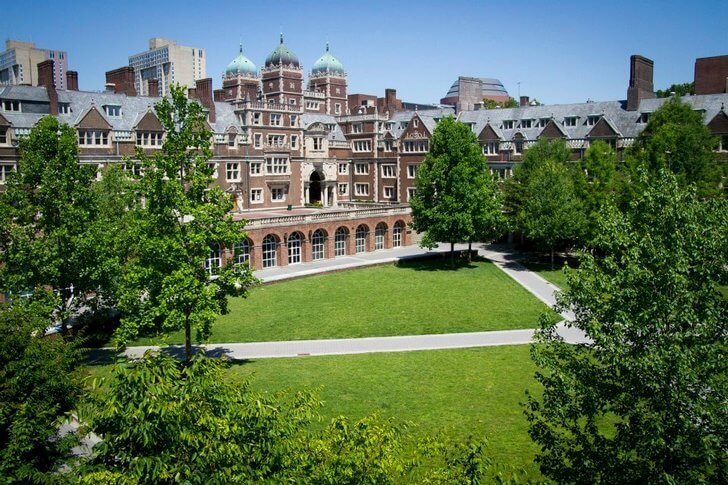
Cathedral of Saints Peter and Paul
The temple was built in 1846 on the model of the Lombard church of St. Charles, which is located in Rome. The building has pronounced features of the classical style: a row of Corinthian columns on the central facade, a triangular pediment and a round central dome. The interior decoration is luxurious and varied: the ceiling is lined with mosaics, the dome over the altar is made of Italian marble, and the pews for parishioners are made of walnut.
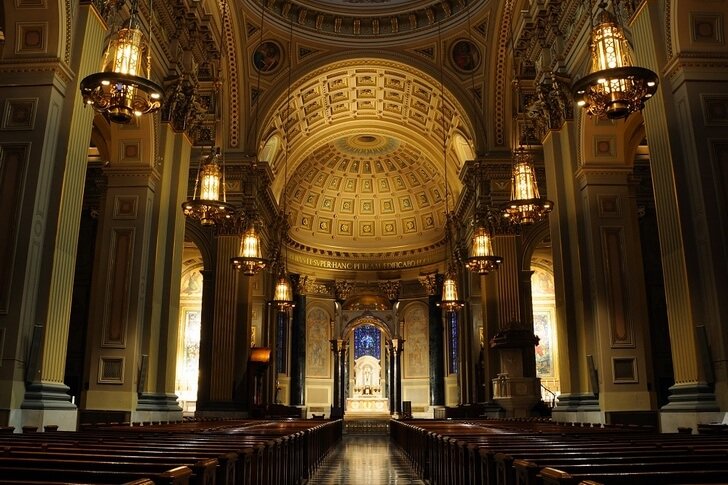
Philadelphia Masonic Temple
The headquarters and main temple of the Grand Masonic Lodge of Pennsylvania, which welcomes thousands of visitors every year. Meetings of this order are regularly held here. The building was built in 1873 according to the design of H. D. Norman in the Neo-Renaissance style. The unusual architecture and rich interior make the Masonic Temple one of the most picturesque in Pennsylvania. Moreover, it is a National Historic Landmark.
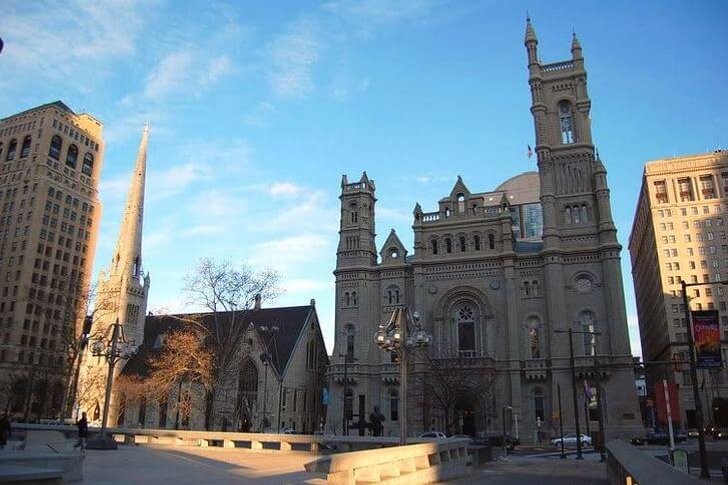
Church of Christ
The temple was erected in the 18th century in the Gregorian style, modeled on London churches. Even in the colonial era, it became an important spiritual center of the state, as it was often visited by prominent political figures: D. Washington, B. Franklin, T. Jefferson, as well as 15 patriots and revolutionaries who later signed the US Declaration of Independence. B. Franklin's grave is located in the church cemetery.
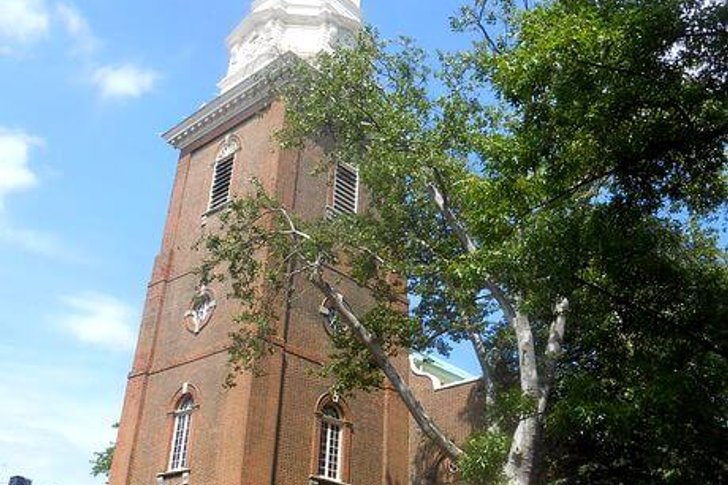
National Constitution Center
A museum entirely dedicated to the American Constitution. Its collection consists of photographs, texts and presentations that tell the history of this document and its importance to the entire nation. Museum halls are imbued with the spirit of patriotism, which is easily picked up even by foreign tourists. After examining the collection, it becomes clear why Americans are instilled with an active civic position from childhood.
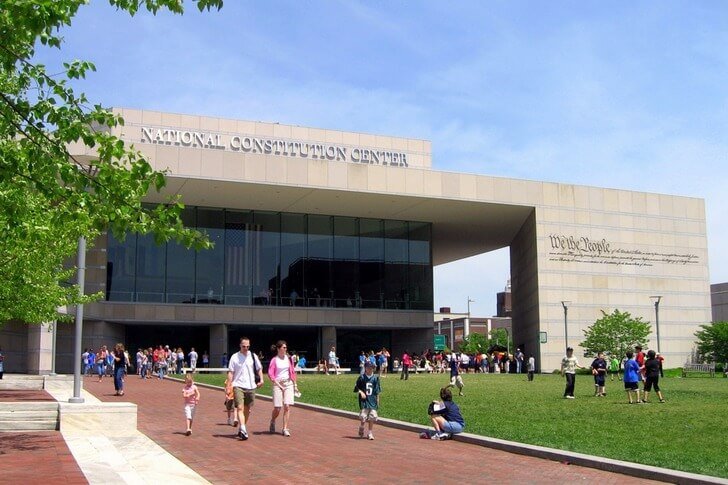
Betsy Ross House
It is believed that it was Betsy Ross who became the author of the American flag (its first version, where 13 stars symbolizing the states are located in a circle). Although many historians doubt that it was Betsy who came up with the design of the banner, no one officially refutes this version. In one of the city houses, not far from the historical park, there is a museum named after this woman. Her grave is located in the courtyard under a large elm tree.
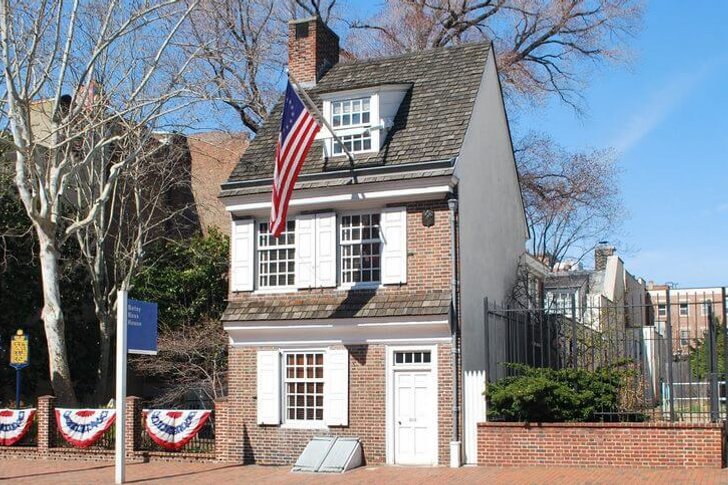
Elfret Alley
One of the oldest streets in the United States, which was built up in 1728-1836. Also here is the building of the old station. Each building is unique in its own way, together they create an atmosphere of past centuries and send tourists back in time: to the colonial era, the first years of independence, as well as the difficult period of the Great Depression. Elfret's Alley is a National Historic Landmark.
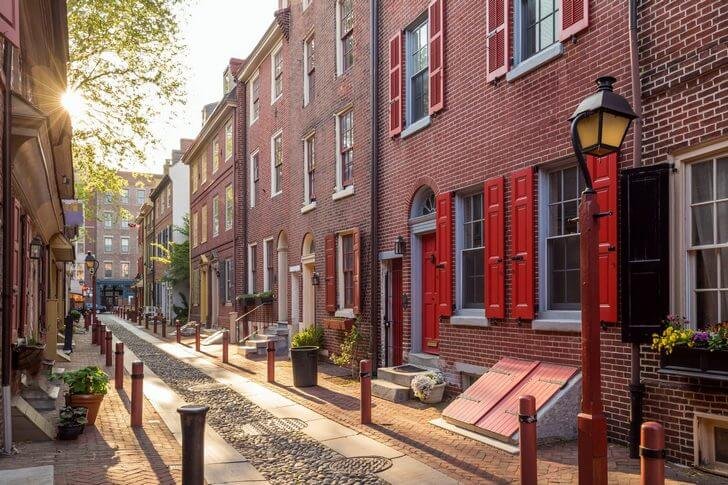
Philadelphia Railroad Station
The largest and busiest station in Pennsylvania, which receives dozens of trains daily from different cities in the United States. The architecture of the building has some features of the classical style, but in general the building looks grandiose and rather concise. The station was built in the 1930s. It was the last railway station to be designed in such a monumental manner.
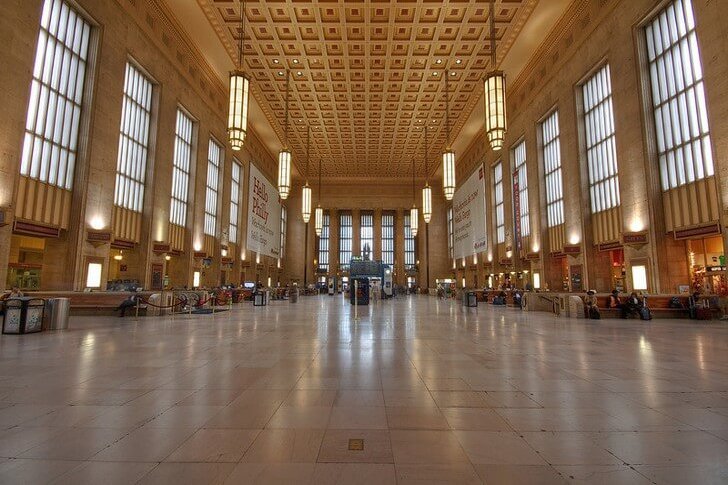
Reading Terminal Market
A large indoor market where you can buy a variety of farm products and ready meals. There is also a large selection of seafood and delicacies produced by the Amish religious community. Once there was a station building on the site of the market, so here you can not only have a delicious lunch, but also admire the historical interiors. Even if shopping is not included in the plans, it's just nice to wander around the market.
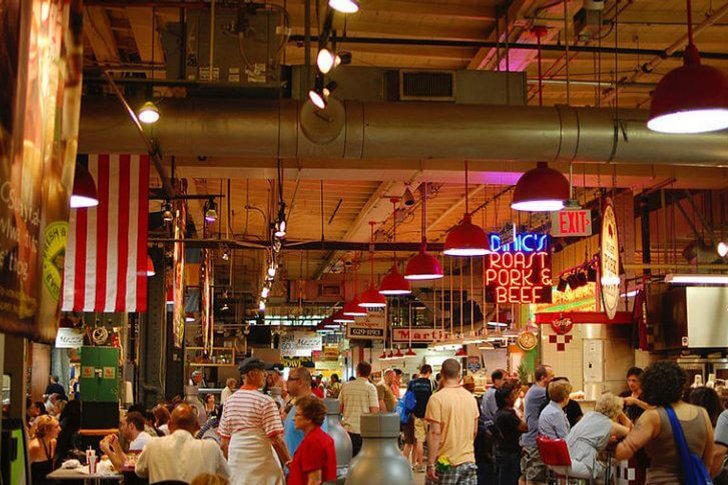
Citizens Bank Park
The baseball stadium where the Philadelphia Phillies play. The arena was built to replace the old Veterans Stadium, which was closed in 2004. The stands of Citizens Bank Park can accommodate about 44,000 spectators. Near the stadium are sports fields for American football, basketball and baseball. A large parking space and convenient entrances are organized for visitors.
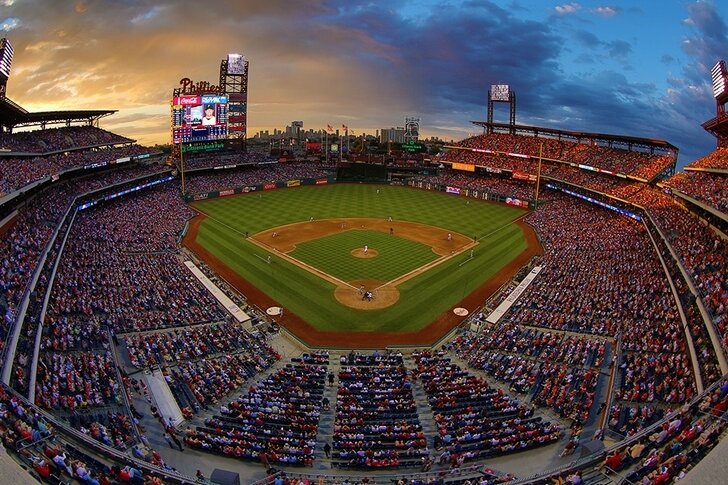
Morris Arboretum
The park, covering an area of 92 acres, where exotic and rare plants grow. Its territory is divided into four zones: rose garden, Japanese garden, English garden and swan lake. The landscaping of the park was created in the Victorian style. The Morris Arboretum is perfect for relaxing walks with family or friends. To enjoy the beauty of nature, you need to allocate a few hours to visit the park.
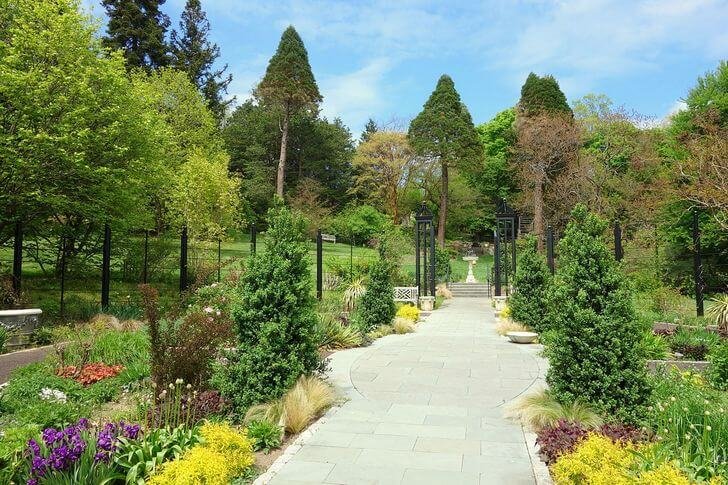
Philadelphia Zoo
The city zoo is considered the oldest in the United States - it was created at the beginning of the 19th century. Dozens of species of animals from all over the world live on its territory: pandas, polar bears, white lions and other rare specimens. In total, more than 2000 individuals live here. The animals are placed in spacious enclosures, thanks to which they feel quite free. The zoo has a comfortable infrastructure for visitors.
